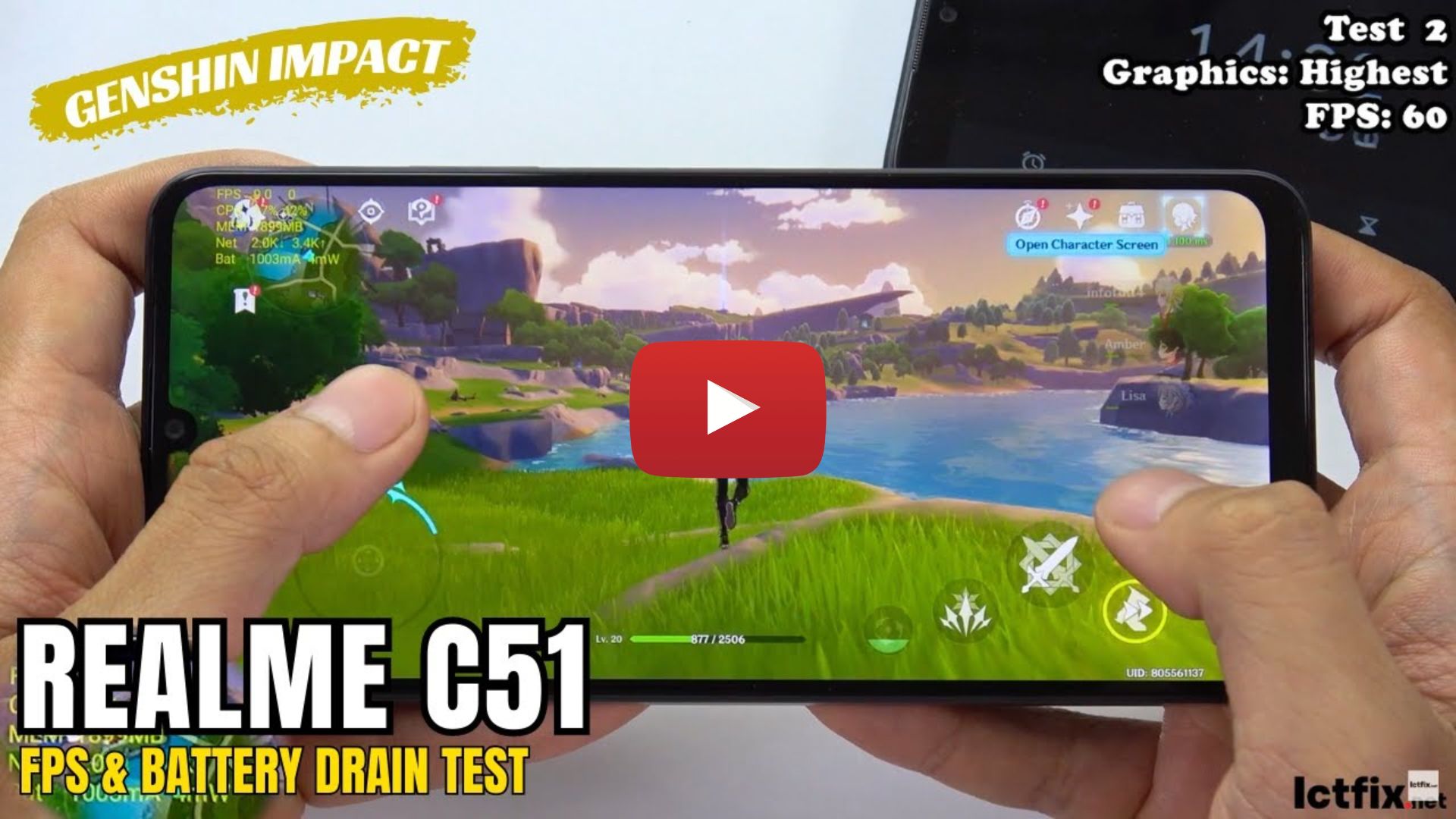Realme C51 Genshin Impact Gaming test | Unisoc Tiger T612, 90Hz Display. Realme C51 is equipped with the Unisoc Tiger T612 chipset, which includes an octa-core processor consisting of 2×1.8 GHz Cortex-A75 cores and 6×1.8 GHz Cortex-A55 cores.
Video Realme C51 Genshin Impact Gaming test | Unisoc Tiger T612, 90Hz Display:
Realme C51 is equipped with the Unisoc Tiger T612 chipset, which includes an octa-core processor consisting of 2×1.8 GHz Cortex-A75 cores and 6×1.8 GHz Cortex-A55 cores. It also features the Mali-G57 GPU. While these specifications may be suitable for running basic and less demanding games, Genshin Impact is a graphically intensive and resource-demanding game that requires more powerful hardware for optimal performance.
Given the hardware limitations of the Realme C51, it is unlikely to provide a smooth and enjoyable gaming experience with Genshin Impact. The game may experience lag, frame rate drops, and overall reduced graphics quality on this device. It is recommended to consider a smartphone with a more powerful processor, a dedicated GPU, and greater RAM capacity for a better gaming experience with Genshin Impact.
Thanks for reading ! If there are questions about “Realme C51 Genshin Impact Gaming test | Unisoc Tiger T612, 90Hz Display” you can comment I will try to answer soon. Please like, subscribe to my channel to motivate me to make even better videos or post.
SUBCRIBE MY CHANNEL HERE !
See more
iPad Mini 6 2023 Genshin Impact Gaming test | Highest Setting, 60FPS
Xiaomi Redmi Note 12S Genshin Impact Gaming test | Helio G96, 90Hz Display
Redmi Note 12 Pro 4G Genshin Impact Gaming test | Snapdragon 732G, 120Hz Display
Oppo A78 4G Genshin Impact Gaming test | Snapdragon 680, 90Hz Display
Oppo Reno10 Pro Genshin Impact Gaming test | Snapdragon 778G 5G, 120Hz Display
Realme 11 Pro Genshin Impact Gaming test | Dimensity 7050, 120Hz Display
Samsung Z Flip 5 Genshin Impact Gaming test
Realme 11 Genshin Impact Gamingtest | MediaTek Helio G99, 90Hz Display
Samsung Tab S9 Ultra Genshin Impact Gaming test | Snapdragon 8 Gen 2, 120 Hz
Samsung Galaxy Tab S9 Genshin Impact Gaming test | Snapdragon 8 Gen 2, 120Hz Display
Xiaomi Pad 6 Genshin Impact Gaming test | Snapdragon 870, 144Hz display


